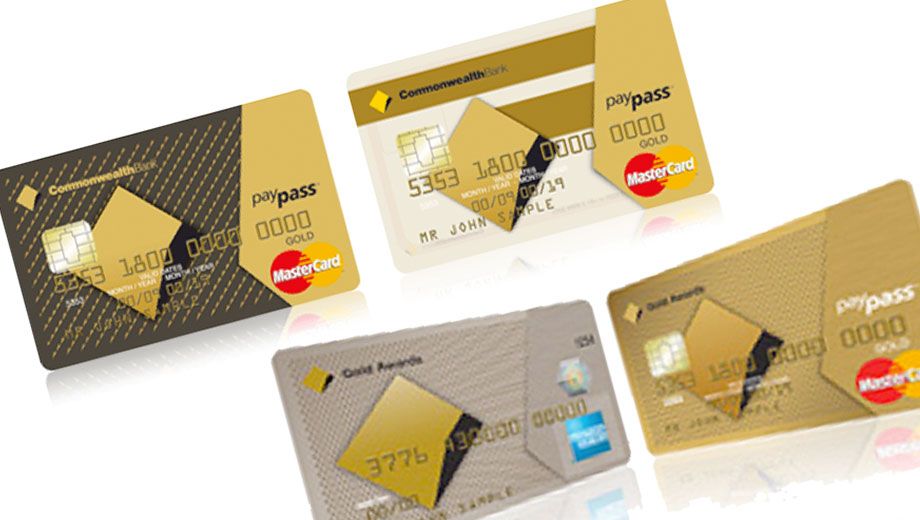Commonwealth Bank gold credit card travel insurance reviewed

Disclaimer
Executive Traveller may receive a commission when you apply for these credit cards via our links.
The information provided on this page is purely factual and general in nature. You should seek independent advice and consider your own personal circumstances before applying for any financial product.
How it compares:
Out of the credit card travel insurance offers we compared (NAB, Commowealth Bank, Westpac, St George, ANZ and American Express), CBA's was average in most areas and good in its overseas rental car excess coverage, income protection and death of cardholder benefits. However, not all travel is covered: you have to pay for 90% of each traveller's overseas airline ticket, or $950 per traveller -- whichever is higher with the card. There is also no possibility of coverage for pre-existing medical conditions of travellers except for the cardholder.
Who's covered:
cardholder, spouse and dependent children for overseas trips up to three months' duration each year. There is no insurance for travel within Australia.
Good or bad? It's normal for free gold credit card insurance. In comparison, a worldwide family travel insurance policy for three months costs about $800 from Travel Insurance Direct.
When the policy kicks in:
In order for the insurance cover to be activated, $950 of airline tickets for each traveller, or 90% of each traveller's return airline ticket must be paid for on the card.
Good or bad? It's average -- at least CBA doesn’t require you to put your entire trip cost on the card to qualify, like NAB Platinum, Westpac Gold & Altitude Platinum, and American Express Platinum Edge card. This leaves a bit of flexibility for leaving cash deposits, or paying for bus/ferry tickets with cash.
Excesses:
If you run into trouble on your trip, and need to use the policy, you'll have to pay $250 per claim type (reduced to $150 for some types of claim, and there's no excess if you need replacement of travel documents, credit cards, travellers cheques, or the emergency replacement of your clothes and toiletries due to delayed baggage.)
Good or bad? It's a bit more than charged by other credit card insurances, which are generally $200 per claim type. Some are much better though -- Westpac Altitude Platinum and St George Platinum only charge one $200 excess per "event" which can include multiple claim types. An independent travel insurance policy from Travel Insurance Direct would only charge $100 per claim, and it would only cost you $25 at the time of purchasing the policy to remove the excess entirely.
Medical coverage:
is unlimited, and there's a cash-in-hospital allowance of $75 per day, up to a maximum of $7,500. Emergency dental treatment -- to relieve urgent pain only -- is covered up to $1,500.
Good or bad? It's average for gold cards. Westpac gold cards are a bit more generous on the daily cash in hospital limit -- $100 per day, up to a total of $12,000.
Pre-existing medical problems:
If the cardholder has pre-existing medical conditions, they can call the CBA's insurer, Zurich, to apply for coverage. However, family members travelling with the cardholder will never be eligible for pre-existing medical condition coverage -- an important exclusion in this policy.
Good or bad? If the cardholder is the only one travelling, it's average. However in terms of family coverage it's bad -- most credit card travel insurance will consider applications for coverage for pre-existing medical conditions of family travelling with you.
Income protection:
This policy also pays loss of income benefits if you get sick overseas, of up to $750 per person per week for up to three months, to a total maximum of $7,500. That's not going to replace most people's salary, given four weeks of $750 is equivalent to $3,000 per month, but it will certainly help with bills.
Good or bad? Good - some credit cards like Westpac and American Express Platinum Edge don't offer it at all. NAB Gold Cards pay a higher benefit of $1,000 per week for up to 90 days, but will make you wait 30 days before they start paying.
Death while travelling:
CBA's gold credit card travel insurance is the most generous policy we looked at in terms of death of the cardholder due to a transport accident -- it pays out $1,000,000 to the cardholder's estate. However, death of a spouse in a transport accident only qualifies for $150,000. Other benefits range down to $250,000 for the loss of the cardholder's eye/hand/foot.
Good or bad? Good - it's the best we looked at for benefits to the cardholder, however ANZ Platinum cards offer better overall coverage, offering $750,000 for death of the cardholder or spouse.
Accidental death:
Accidental death (not related to a transport accident, up to 12 months after some other sort of related accident) are $25,000 for the cardholder and their spouse, and $5,000 for a dependent child.
Good or bad? Good for a gold card -- only NAB tops it with its gold card, offering $100,000 for accidental death of the cardholder, or $50,000 for the spouse.
Theft/loss/damage:
Commonwealth Bank Gold Card Travel Insurance will pay out up to $20,000 in total for a whole family for property loss or damage while travelling, or up to $10,000 per person. Per item limits apply, though; $3,000 for baggage/clothing, $3,000 for electrical equipment, $3,000 for cameras, $3,000 for laptops, $500 for travel documents and cash.
Good or bad? Average for a gold card. Westpac Gold Cards offer a higher per-person limit of $15,000 (but still a maximum of $20,000 for everyone) and also offers a higher claim limit of $5,000 for laptops.
Rental cars:
As long as you take out comprehensive insurance when you rent a car (which is a standard part of the price usually), the policy will cover you for rental car insurance excesses (if you damage the car) of up to $2,250.
Good or bad? Average for a gold card. There are no tricky conditions on this, which is good, though many rental car excesses are much higher than $2,250.
Travel delays:
After 6 hours delay, the insurance will pay out up to $250 per person, to a total maximum of $500. Each additional 12 hour block, you get up to $150 per cardholder or $300 if they're travelling with family. There is no coverage for expenses due to missed connections.
Good or bad? Average for a gold card.
Toll free number:
The policy says you can call the insurer reverse charges from anywhere in the world, so you won't have to pay for international phone calls, in case of emergency while overseas.
Good or bad? Average for a gold card.
What they don't cover:
You need to read the whole policy to see everything that's not covered, but some things that particularly stood out to us were: Any fragile item (except cameras); any item purchased in a business name; any valuables in baggage like jewellery, watches, cameras, mobiles, laptops or other electrical items, any loss of property that cannot be explained to Zurich's satisfaction; anything related to you being under the influence of alcohol or drugs; clothing while being laundered; any travel provider going out of business; any injury while playing sport or many adventure activities; injury while on a motorbike more powerful than 200cc; any damage caused by flooding; any lost/stolen item you didn't file a police report for; any item you don't have a purchase receipt for.
Good or bad? All insurance has a lot of exclusions. The key is to read up on them before leaving on your trip, and plan around them. The one that worries us in this policy is "any loss of property that cannot be explained to Zurich's satisfaction" which leaves an awful lot of wiggle-room for the insurer to get out of paying up.
CBA's gold credit cards with travel insurance:
- Commonwealth Bank Low Rate Gold Card
annual fee $120, interest rate 13.49% purchases / 21.74% cash advances - Commonwealth Bank Gold Awards Card
annual fee $144, interest rate 20.74% purchases / 21.74% cash advances) - Commonwealth Bank Low Fee Gold Card
annual fee $90 (waived if annual spend is over $10,000), interest rate 20.74% purchases / 21.74% cash advances)
CBA's website about gold credit card travel insurance:
http://www.commbank.com.au/personal/credit-cards/complimentary-insurance-cover.aspx
Full Commonwealth Bank Gold Credit Card travel insurance policy PDS document:
http://www.commbank.com.au/personal/apply-online/download-printed-forms/ADB631.pdf
This article was written based on the product disclosure statement available on the Commonwealth Bank's website on 1st December, 2010. Insurers can change the wording of policies they are selling at any time, so be sure to read the product disclosure statement yourself before signing up. Additionally, this article should not be taken as formal financial advice. You should consult a qualified financial planner.
Disclaimer
Executive Traveller may receive a commission when you apply for these credit cards via our links.
The information provided on this page is purely factual and general in nature. You should seek independent advice and consider your own personal circumstances before applying for any financial product.

Quantas
03 Dec 2010
Total posts 1
We believe that it's important for travellers who rely exclusively on travel insurance provided with their credit card to understand that the onus is upon the individual to notify the insurer about any pre-existing conditions. Unlike Travel Insurance Direct where 42 pre-existing conditions are automatically covered, in most cases zero conditions are covered with credit cards. To assure that no claims are denied, individuals must incur the cost of seeing their GP to get an opinion after which, in the case of Zurich, then pay $50 admin cost to get the pre-existing condition approved.
Ian Jackson
General Manager
Travel Insurance Direct
Qantas
24 Oct 2010
Total posts 177
Thanks for the input Ian -- yes, automatic coverage of common pre-existing medical conditions it's a clear difference between credit card travel insurance and dedicated insurance policies. ANZ's Platinum card, which I've just posted the review for, has some automatic coverage of common conditions, which is good to see.
I hate to think of the strife people must frequently get into when they rely on travel insurance policies without reading the policy document first...! I can understand why insurers have to limit their risk in order to keep policies affordable, but there are a vast number of gotchas if you don't pay attention to the policy wording.
07 Aug 2012
Total posts 1
Given that travel insurance is vital for anyone travelling overseas, I find it very disconcerting that there is not any document that names me, and the insurer (Zurich for CBA), as the policy holders for the travel insurance. In othr words, I have to rely on it being implicit that I have travel insurance, and there's nothing from the insurer saying that I'm actually insured.
Is there anyway I can get a travel insurance document, naming me and the insurer, stating that I do have travel insurance?
Hi Guest, join in the discussion on Commonwealth Bank gold credit card travel insurance reviewed